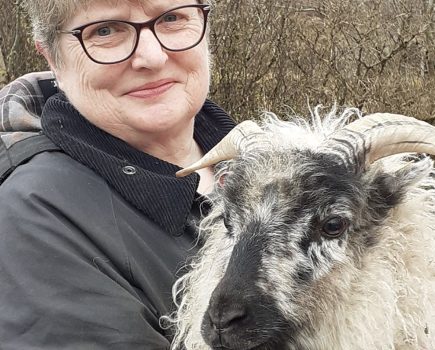APRIL 22, 2014: Smallholders and small farmers have staged a demonstration outside the offices of DEFRA in London.
They claim DEFRA sidelines small and family farms in favour of agribusiness in the debate about UK food security. Demonstrators paraded larger than life scarecrows of DEFRA Secretary Owen Paterson, and a generic ‘agribusinessman’ wearing the badges of Monsanto, Syngenta and Tesco.There was a display of produce illustrating the productivity of small farmers, while spokeswoman Jyoti Fernandes said that, given adequate support local, ecological food could break out of its ‘luxury niche’ and provide affordable food for everyone. Other speakers included Kate Collyns, a young organic market gardener, who talked about the obstacles to new entrants, and Simon Fairlie, editor of The Land magazine, highlighted the historical context of this new wave of protest from agricultural workers. The demo was held on the International Day of Peasant Struggle, and Sarah Reader from the World Development Movement, spoke of the landless peasants’ movement in Brazil, where 19 demonstraters were shot by police in 1996. This sense of international solidarity was continued when Julian Rose and Jadwiga Lopata, a smallholder from Poland, told of the struggle for survival of traditional, sustainable Polish farms in the face of agribusiness development and urged UK smallholders to support their campaign. As DEFRA employees left the building during their lunch break, they were handed leaflets outlining the role small farmers have to play in ‘feeding the future’. The Land Workers’ Alliance, which organised the protest, is a new organisation representing the interests of small and ecological food, fuel and fibre producers. A spokeswoman said: “This is only the beginning. We were heartened that so many people came to London to support our demonstration and that the agricultural press seem to have sat up and taken notice. Now we hope to continue the dialogue to ensure that DEFRA create policies that enable a new generation of small, ecological producers to contribute to feeding the UK.”







